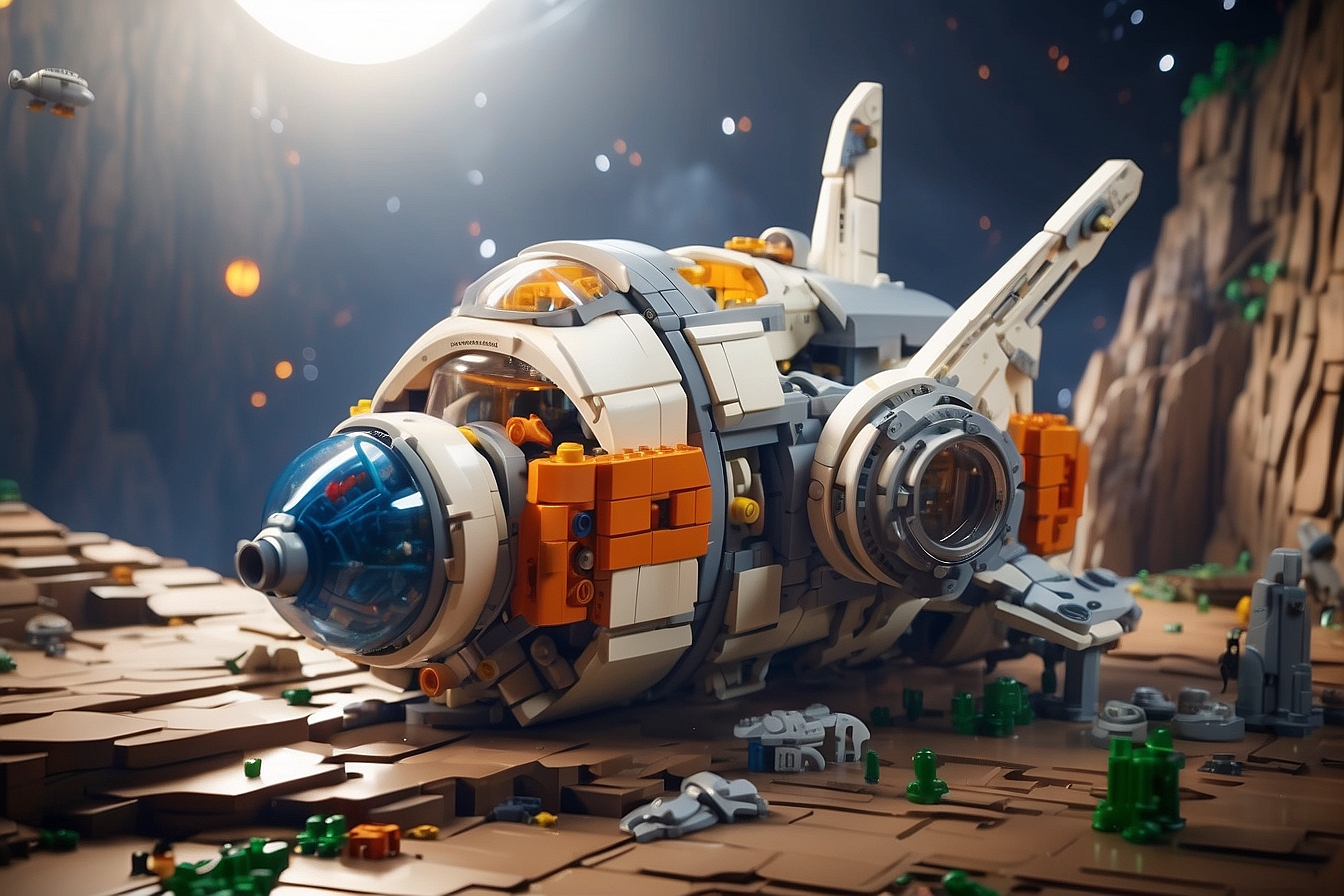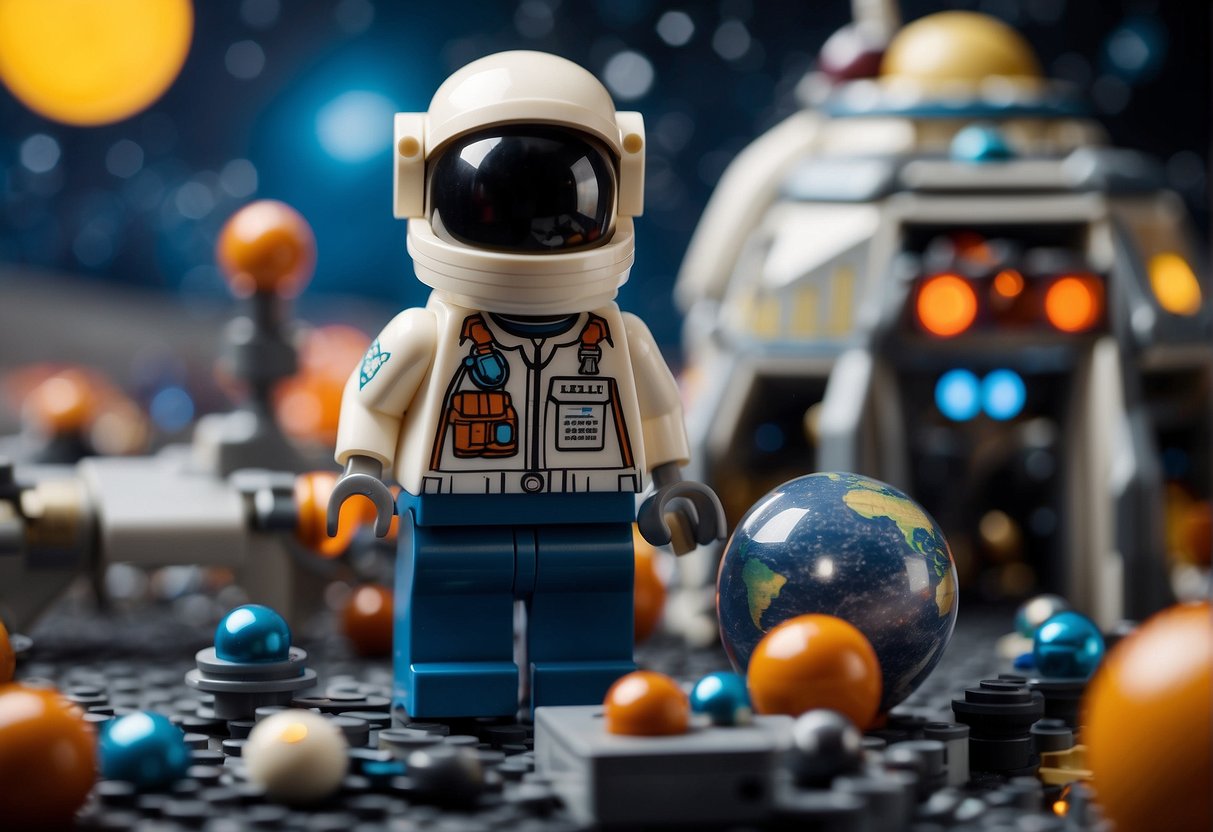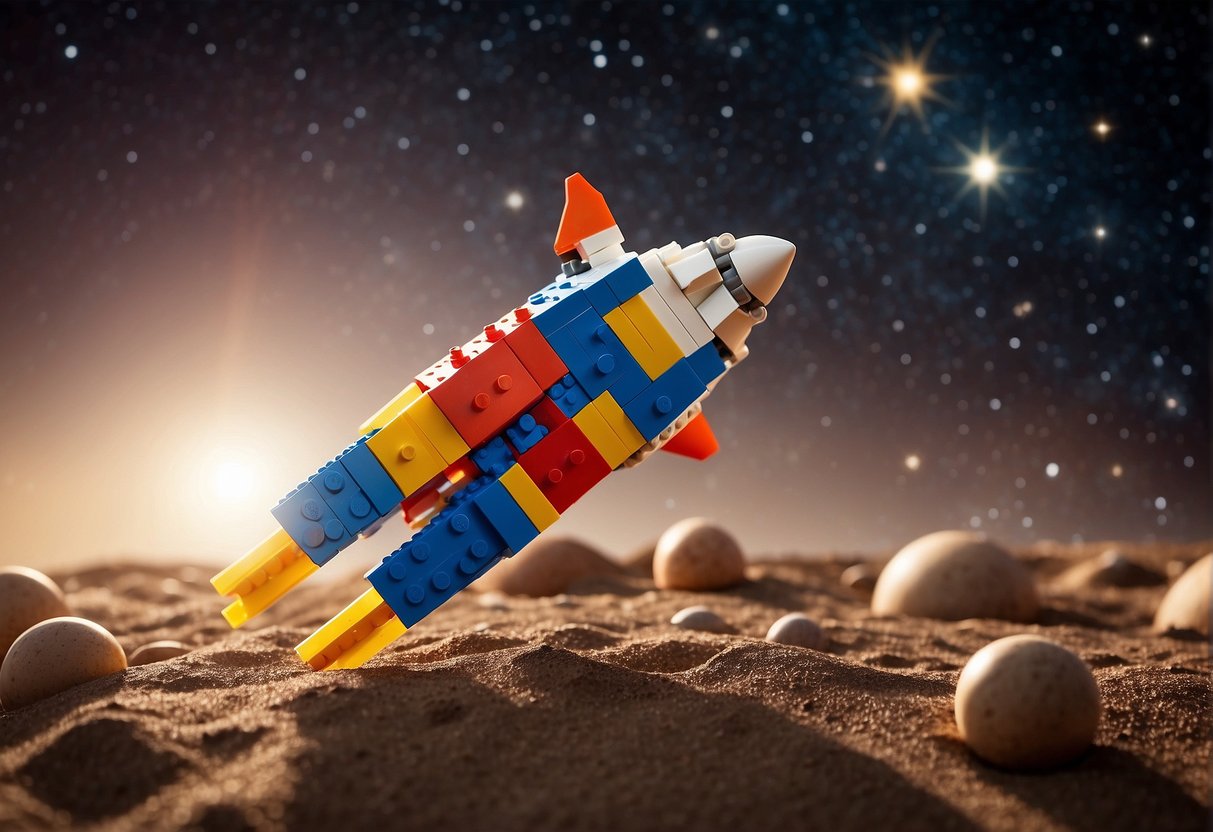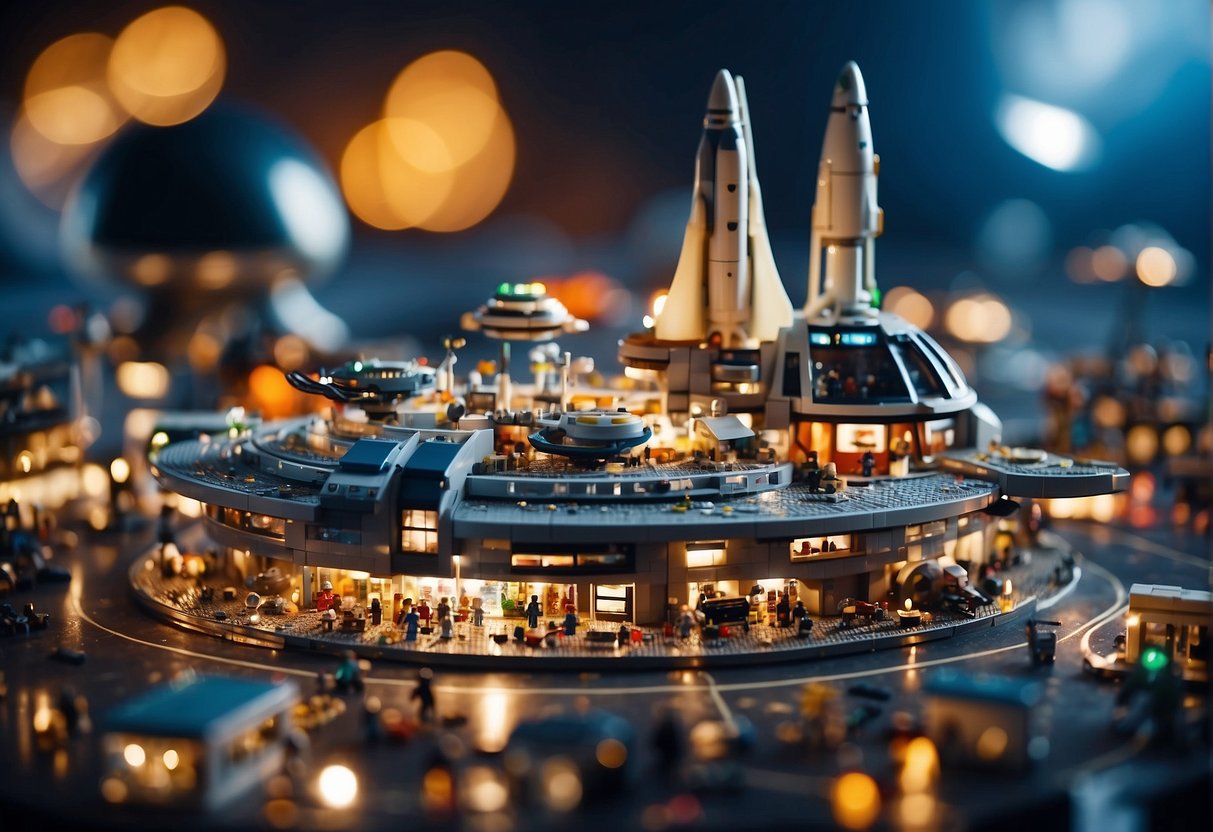
The intersection of LEGO and space has created a unique pathway for imagination to intersect with scientific discovery, inviting builders of all ages to explore the cosmos one brick at a time. LEGO has been synonymous with playful learning and creativity, but their space-themed sets transport this ingenuity into the realm of space exploration. Through meticulously designed kits, enthusiasts can reconstruct some of humanity’s most iconic spacecraft and technologically advanced stations, piece by piece. This tactile journey through building not only captivates minds but also educates individuals about the vastness of space and the intricacies involved in venturing beyond Earth’s atmosphere.

With each new LEGO space set, the intricate details are not just for play; they serve as a homage to the scientific and engineering milestones achieved in space exploration. The evolution of these models mirrors the advancements in space technology, revealing how far the human race has ventured into the unknown. LEGO space themes have evolved to include diverse storylines and characters, showcasing a universe teeming with possibilities and encouraging a narrative beyond the build. Collectors and educators alike value these sets for their ability to merge the joy of creation with the wonder of the cosmos, thus sparking an interest in science and astronomy that may last a lifetime.
The legacy of LEGO space themes bridges the gap between imaginative play and the intrigue of cosmic exploration, capturing the hearts of builders since their inception.
In 1979, the LEGO Group broke new ground by launching the Classic Space theme. It marked the entry of the iconic LEGO astronaut minifigures, replete with visor-less helmets and air tanks, ready to explore the galaxy with a smile. Among these sets, the Galaxy Explorer stood as a beacon of interstellar imagination, laying the foundation for many generations of LEGO space adventures.
The late 1980s witnessed the rise of new factions within the LEGO space universe. Futuron introduced a sleek, monochromatic color scheme with greater emphasis on civilian life in space. Counterbalancing Futuron’s utopia, Blacktron emerged as the first defined antagonist with a bold, black and yellow design punctuated by red transparent elements, setting the stage for a more narrative-driven play. The LEGO Group also introduced Space Police, an intergalactic law enforcement theme to keep the cosmic peace, adding layers of storytelling to the building experience.
As the 1990s dawned, LEGO further expanded its space saga. M took on a more industrial design with its red and black color palette, featuring magnets as a novel play element for transportation. Following M, Ice Planet made a chilly debut, distinguished by blue and white bricks with trans-orange chainsaws representing a frigid exploration theme. Each new theme reinforced the story-driven approach while also inviting builders to imagine their space-faring narratives.
Entering the new millennium, LEGO space sets voyaged from Mars to the outer reaches of imagined galaxies. This era of space sets began to incorporate more sophisticated storytelling elements, aligning with real-world discoveries and advancements in space exploration. As builders assembled these sets, they were not just creating vehicles and bases, but entire worlds and stories fueled by human curiosity and the spirit of interplanetary exploration.

In the realm of LEGO space sets, design and innovation have launched a universe of intricate models, merging classic building techniques with advanced technology.
Engineering spaceships in LEGO form requires a thoughtful combination of classic design elements and modern brick engineering. LEGO designers meticulously plan these sets to capture the essence of real spacecraft while ensuring playability and structural integrity. The engineering process often starts with a vision of future space technology and translates that into scaled models that can be assembled with LEGO bricks. For instance, NASA and the LEGO Group’s partnership fostered an imaginative platform where LEGO versions of spaceships bear a striking resemblance to their real-life counterparts.
To further bridge the gap between play and reality, LEGO integrates tech elements into its space sets, creating interactive experiences. These features range from simple mechanical functions that mimic the movement of a spaceship to the use of software and apps, enhancing the educational value. For instance, some models incorporate simulations of spacecraft launches or rover explorations, using technology to educate and inspire young space enthusiasts. This embrace of new technologies demonstrates LEGO’s commitment to innovation within its space themes.
LEGO’s legacy in capturing the vast expanse of space extends into the smallest of hands through their detailed and diverse range of astral-themed minifigures. These tiny astronauts and space characters allow fans to reenact and imagine cosmic adventures.
The astronaut minifigures stand as timeless symbols of space exploration in LEGO form. They come equipped with authentic space gear, like visor helmets and oxygen tanks, which reflect the attire of real-life space explorers. Over the years, LEGO has expanded its cosmic collection to include characters inspired by classic space themes, such as the Space Penguin and the mutated Blacktron, providing a nostalgic nod to decades of space play.
Notable Astronaut MInifigures:
LEGO minifigures have always played a vital role in fostering imaginative play, endorsing a variety of space-related scenarios from intergalactic missions to alien encounters. The characters encourage children to craft intricate narratives where the boundaries of the universe are as limitless as their imagination. Each minifigure, from the rugged space miner to the graceful astrobiologist, serves as a catalyst for storytelling and role-play, enabling young minds to explore diverse professions within the interstellar realm.
Examples of Roles in Imaginative Play:
LEGO’s Space sets not only capture the spirit of cosmic discovery but also stimulate the imagination by introducing narratives that align with the broader themes of space exploration.
In the LEGO universe, storytelling is a pivotal aspect that enhances the play experience. The various LEGO Space play themes are accompanied by backstories that drive the purpose of each set. They are designed to replicate real-world space missions, embedding a sense of adventure in young builders. For instance, the earliest space sets by LEGO were influenced by the space technology from the 1960s and 1970s, with distinct elements that encouraged children to reenact lunar base constructions or interplanetary travel.
LEGO sets often reflect current trends in space exploration, instilling an appreciation for science and technology. With the LEGO® Space Factions of the late 1980s and 1990s, children could explore themed sets that depicted teamwork in space, from mining operations to communal living in space stations. These sets leverage childhood fascination with astronauts and intergalactic adventures, inspiring the next generation to dream about the final frontier.
LEGO is not just a toy but a versatile educational tool that has been instrumental in bringing complex science and technology concepts to classrooms and living rooms. Using LEGO bricks, educators and enthusiasts can physically construct and understand sophisticated ideas in space exploration and STEM (Science, Technology, Engineering, and Mathematics).
The International Space Shuttle (ISS) and the iconic Space Shuttles have been impressively recreated using LEGO bricks. These detailed models serve not only as educational kits but also as a source of inspiration for both young and adult fans of space exploration. They are intricately designed to mirror the actual spacecraft, complete with moving parts and functionalities that teach builders about the complexities of space vehicles. For instance, the LEGO ISS model features solar panels, a Canadarm2, and even miniature cargo crafts, allowing individuals to understand the workings and structure of the space station.
LEGO sets specifically themed around space, such as the ones depicting the Artemis I mission to the Moon, highlight the brand’s commitment to promoting STEM through play. They provide hands-on experience in the scientific principles that govern space technology. By assembling these sets, learners of all ages engage with the basics of physics, engineering, and space technology. Additionally, the collaboration with NASA exemplified by the Build to Launch series is a notable initiative that promotes active learning. This 10-week interactive series explores technology, concepts, and careers behind NASA’s Artemis I mission, making the daunting realm of space travel more tangible and comprehensible to students.
For LEGO fans, the allure of space-themed sets goes beyond imaginative play, evolving into a pursuit of collectability and the creation of stunning display pieces that celebrate human space travel.
Classic LEGO space sets have transcended their original purpose, becoming highly sought-after collectibles. The enduring popularity of these sets is evident through their increasing rarity and value. LEGO 2024 Space CMF rumors suggest that the charm of space-themed sets is only set to grow, with dedicated collectors eager to acquire these potential new classics. Furthermore, the anticipation of a new space-centric model, such as set number 10341 listed by brickmerge.de, showcases the ongoing legacy of LEGO space sets as collectibles.
Creating a display piece from LEGO sets embodies the spirit of space travel, serving both as an homage to space exploration and an impressive visual attraction. The Spaceship and Asteroid Discovery kit, for example, not only presents a modern twist on space exploration for LEGO enthusiasts of all ages but also translates into an attention-grabbing centerpiece. With an updated branding strategy, incorporating the Classic Space logo, LEGO is unifying its space-themed sets across various themes, enhancing their display potential and reinforcing their status as collectable items.

LEGO has left an indelible mark on both popular culture and space enthusiasm, bridging the gap between play and the cosmos with its imaginative sets and interstellar themes.
LEGO’s venture into the stars began with the LEGO Space line, taking children and adults alike on a journey through the galaxy. This series introduced a variety of intergalactic sets, instilling a fascination with the night sky and beyond. The introduction of LEGO Star Wars took this to a new level, combining storytelling with construction to capture the epic narratives of the beloved franchise. These sets have become cultural icons, allowing fans to recreate famous scenes and invent new adventures.
LEGO contributes significantly to space enthusiasm by offering the LEGO City Space collection, which mirrors real-world space exploration missions. It’s not just about play; these sets teach the principles of aerospace engineering and the science behind space travel.
The synergy between LEGO and the exploration of the universe serves to educate and excite, turning playtime into an opportunity to grasp the vastness of space and the intricacies of space travel.

The LEGO universe grows continuously, now stretching into the realm of space with an array of themes that capture both the cosmic scale and human drama of interstellar exploration.
As LEGO embraces the universal theme of exploration, it also pays homage to the tales of conflict and alliance. Intricate sets feature radar dishes and antennas, elements essential for communication across the vast emptiness of space. Helmets and air tanks are not simply accessories; they represent the survival of minifigure astronauts in hostile environments. LEGO’s narrative-driven play themes take inspiration from humanity’s innate interest in aggression and cooperation, unfolding in elaborately designed bases that serve as hubs of intergalactic interaction.
The LEGO Group’s ambition transcends our galaxy, offering a rich selection that taps into astronomical phenomena and the human spirit of discovery. Beyond just space vehicles, the LEGO sets serve as a gateway for enthusiasts to construct their own universes, complete with detailed play themes that include research outposts on distant planets and spacecraft equipped for deep space missions. The thematic diversity is a testament to LEGO’s commitment to both education and entertainment, forging a unique pathway for explorers of all ages to engage with the cosmos.
In this section, we dive into some common queries about ‘LEGO and Space: Building the Universe One Brick at a Time’, shedding light on its inspiration, reception, and availability, as well as exploring grand LEGO space-themed projects and the brand’s historic milestone of universal brick compatibility.
The book was inspired by the fascination with cosmic exploration and the desire to combine it with the creativity of LEGO. It aimed to spark imagination by illustrating the boundless possibilities of constructing space-themed LEGO models.
Since its release, reviews have highlighted the book’s engaging content that caters to both LEGO enthusiasts and space exploration admirers. The visualization of assembling intricate LEGO space models has received appreciation for its detail and creativity.
Readers looking to purchase the book can find it on Amazon by searching the title, where it’s available for sale in both hardcover and eBook formats.
While there isn’t an official free PDF version available, readers may find paid digital copies or may choose to purchase physical or eBook versions from reputable book retailers.
Some of the most ambitious projects include life-size NASA spacecraft models and detailed replicas of the International Space Station, which showcase incredible attention to detail and scale.
LEGO implemented their compatibility system in 1958, a standard that ensures bricks from different sets can seamlessly connect, allowing for endless creative possibilities.